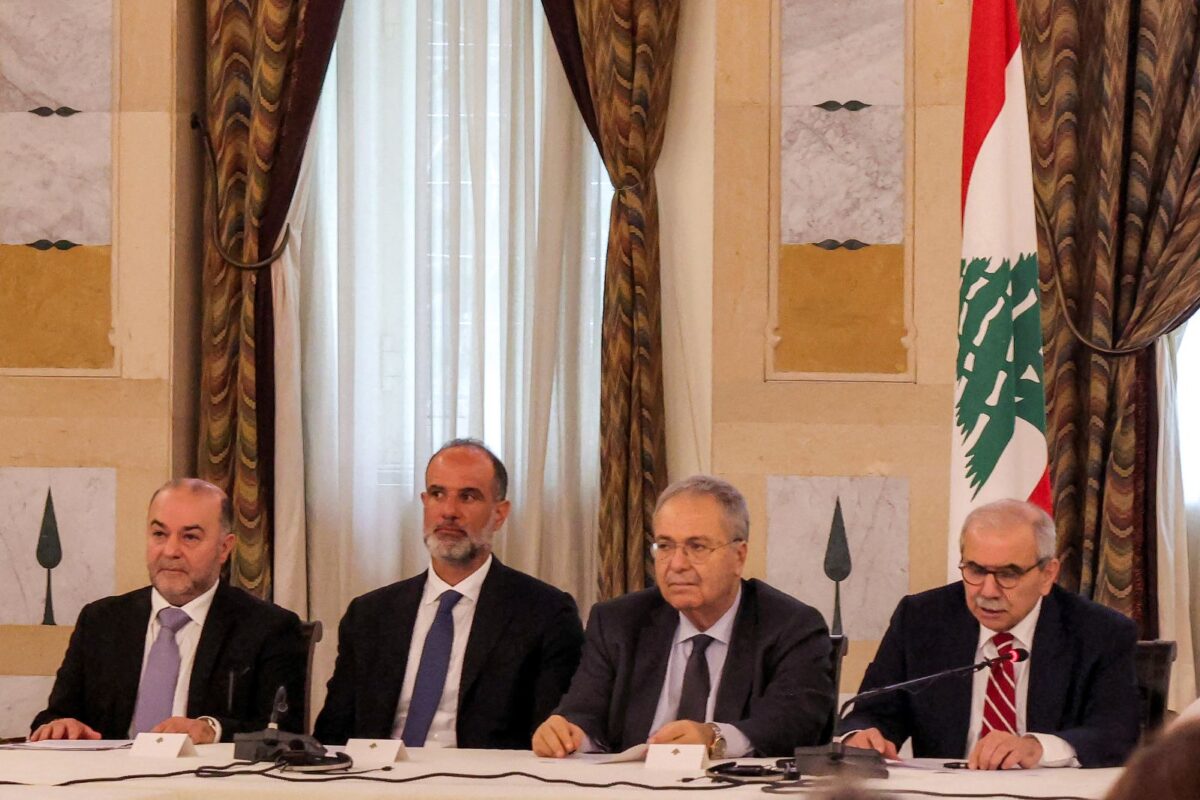
Since October 7, 2023, when the war erupted in Gaza and spilled into Lebanon by September 2024, the Lebanese people across all sectors and affiliations have been holding their breath, waiting for what many described as the “day after.” That elusive promise of a better future, of national recovery, of a long-overdue reset, felt suddenly within reach. For a brief moment, the country believed. A new President, General Joseph Aoun, was elected. A respected international jurist and diplomat, Nawaf Salam, was appointed Prime Minister. A cabinet of 24 ministers carefully selected, competent, and widely admired took office. Many Lebanese dared to hope, perhaps, this time, real change had finally arrived.
But that moment slipped through our fingers again.
Instead of a breakthrough, we encountered the wall: the same entrenched political class, the same impenetrable system, the same resistance to reform. Even with the best intentions and the strongest credentials, the new leadership could not break the grip of the so-called “deep state.” One hundred days into the government’s tenure, the verdict was clear: reform was paralyzed, laws were blocked, and the machinery of the state was still hijacked by vested interests.
The Political Stalemate: A System Built to Block Reform
Despite the heavy setbacks suffered by the Iranian axis seen in Hezbollah’s declining position in Lebanon and the collapse of the Assad regime in Syria the balance of power here has barely shifted. Hezbollah remains firmly in control. Even after signing a ceasefire deal that many consider a strategic retreat, its grip on Lebanese political life has not loosened. Its influence built over years inside state institutions, still dictates the country’s direction.
Meanwhile, the rest of the political class waits for signals before making any move. Parliament is stuck. The Cabinet is unable to act. No law has passed to address the issue of illegal weapons or restore state authority. The system is doing exactly what it was built to do: protect itself, resist any change, and keep those in power exactly where they are.
The Economic Mirage: A Republic of Cash Economy
Lebanon now operates as one of the largest cash economies in the world, an outcome not of crisis, but of deliberate political engineering. The International Monetary Fund, the World Bank, Arab allies, the United States, and the United Nations have all called for urgent structural reforms: Bank restructuring, transparency, anti-money laundering measures, and public sector restructuring. None of these steps have been taken.
Instead, the political and financial elite have fostered an economy where cash reigns supreme. In today’s Lebanon, the cash economy is not a symptom, it is the system. Transactions, salaries, investments, and even public services are increasingly based on physical cash. This environment has opened the door for a wave of newly formed companies and platforms that thrive within this informal structure, many of which are designed specifically to operate outside regulatory oversight.
These cash economy companies have flourished in recent months, offering services that bypass banking systems, accountability, and taxation. In many cases, they serve as vehicles for shielding wealth, avoiding scrutiny, and preserving the political status quo. By design, this cash-based parallel economy blocks the development of a healthy, transparent private sector and keeps Lebanon locked out of the international financial order.
This isn’t just economic mismanagement—it’s a strategy to ensure that Lebanon remains a republic of cash, informal power, and untraceable wealth. Reform would expose the foundations of this system, which is why it continues to be resisted at every level.
The Social Fabric: Kept Fragmented on Purpose
At the heart of Lebanon’s national paralysis lies a calculated effort to preserve a fragmented, sectarian-based society. The shift toward a modern, inclusive, citizen-based system built on equal rights, digital governance, and meritocratic access is being deliberately suppressed. Electoral laws remain skewed to reproduce the same faces in power. E-governance is blocked. State institutions have been hollowed out, replaced by a patchwork of sectarian patronage networks, foreign-funded NGOs, and donor-driven projects. Citizenship, in its civic sense, has been denied, because it threatens the foundation of inherited power.
What’s Next: The World Has Changed, But Have We?
The region is shifting quickly. The old power structures are fading, and Arab countries are moving forward strengthening ties with the West, focusing on development, and embracing regional cooperation. Lebanon, however, continues to follow a losing path acting as if it can ignore global trends or resist the need for reform.
This is no longer politics as usual, it’s a serious misjudgment. If Lebanon keeps pretending nothing has changed, it risks total isolation: Israel to the south, a new Syrian regime to the north and east, and a closed sea to the west. The space for error is gone.
Lebanon must reconnect with the Western and Arab blocs. Reform is no longer a choice, it’s a condition for survival. We need to reset our direction. The time for delay is over. The clock has already run out.
Farid Fakherddin, a Lebanese political activist, advocates economic growth and citizen welfare.
The views in this story reflect those of the author alone and do not necessarily reflect the beliefs of NOW







